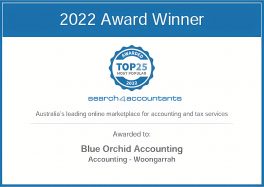Having a good relationship with your accountant and feeling confident that they understands your financial situation and goals can alleviate much stress and this allows you to concentrate on what you do best, i.e. running your business.
What should you look for when engaging the services of an accountant, either before starting up a business or if you are not happy with your present accountant?
Here are 5 tips to help you choose that accountant:
Interview Them
Request a free consultation with at least three accountants and talk openly about your business’ history (if it is an established business) and your future financial goals. Take along previous tax returns and financial statements and give each other a chance to decide if you can work together. You need to feel confident about sharing confidential information with them, and they needs to ascertain whether they can help you achieve your goals. Be open about the fact that you are “shopping around” for the best “fit” accountant for your business. Be open about your personal financial situation as well – it is logical to have your accountant handle both your business and personal taxation returns.
Check Their Qualifications
Check your accountant’s qualifications and memberships. Most accountants are proud to display their qualifications on their office wall or lobby, as they are the result of years of intensive study. Check if they are a member of one of the major professional bodies, the Certified Practicing Accountants (they will have the initials CPA on their stationery) or the Institute of Chartered Accountants in Australia (they will have the initials CA on their stationery) or National tax & Accountants’ Association (they will have the initials NTAA on their stationery). If you are not sure about their qualifications, it is not considered rude to ask them this question.
Check Their Fees
Ask your accountant for details about their fee structure – do they charge per hour or per service, or is there a fixed monthly or annual fee? Do your homework and find out what other accountants in the area charge. Can you save money by having a more junior accountant in the practice handle your affairs, with the principal checking their work? This is common practice in many accountancy practices.
Business Compatibility
Check that your accountant works with small business clients (or whatever your business model is). Smaller accountancy practices often understand the needs of small business better than larger practices, and this is often reflected in their fee structure. Ask to speak to some of their existing clients – they should be happy for you to do this.
Financial Advice Available
You may require more from your accountant than just tax return submission, e.g. financial advice about future business growth, investments, asset management or employee issues. In this case, check that they wish to be more than a “year end” accountant of simply submitting your tax return. Ask whether it is acceptable to ring them as needed. If, as your relationship progresses, you feel that your needs are not being met, that your accountant is not available to take your calls or return them within twenty-four hours (don’t forget, they will be servicing the needs of other clients), or that they do not submit your returns on time, it is perfectly acceptable to engage another accounting service. Your new accountant will contact your old accountant and request transfer of your files, which should happen promptly.
So start today by checking the local business directory, chamber of commerce, classified or on-line advertisements for a list of accountants and start calling.













